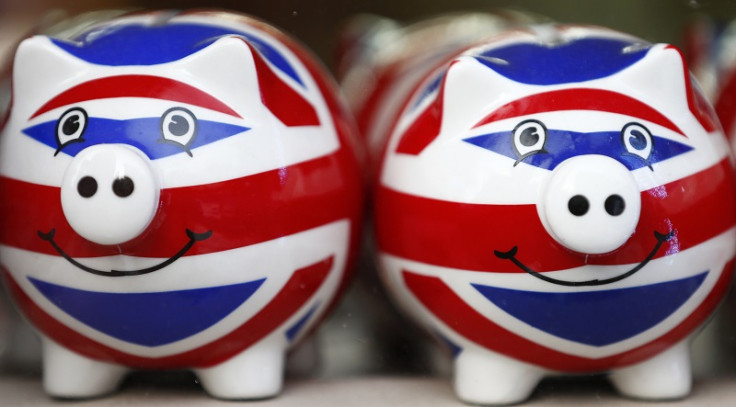Why Women Are Still Being Failed in the Workplace in the US and UK

The jobs market has, yet again, been dominated by the controversy over the zero-hours contracts but as politicians and the public battle against employment instability, the issue over female equality in the workplace has been put on the back burner once again.
The seemingly never ending debate over equality between male and female workers has turned into white noise for many.
We hear that women can have it all now; top jobs, lengthy maternity leave and decent pay. Any contradicting opinion to that is now met with eye rolls and patronising smirks.
So, why are women still being failed in the workplace? Well, let me tell you exactly why.
Truth Behind the Poster Child
So let's work from the top down because those who believe that women have it better than ever use one or two business titans to show that women can, and do, have it all.
As always, scratch underneath the surface, and you realise the colossal difference in women and men in leadership.
The consultancy firm, with the clunky name, Strategy&, formerly Booz & Company, revealed that only 5% of the world's 2,500 largest public companies are run by women.
I'd hardly call that 'breaking the glass ceiling'.
Specifically, women in Britain are still failing to break through the glass ceiling as only 20% of FTSE 100 boardroom members are held by females.
According to the benchmark Cranfield Female FTSE report, while FTSE 100 firms are employing more women in senior positions, the percentages still fall short of the 2015 target of 25%.
Last year, 20.7% of board positions in FTSE 100 companies were held by women, up from 17.3% and 12.5% in the two previous periods.
Gripping on By the Fingertips
It's depressing enough that data shows that there are barely any women in leadership but it's even more worrying that those who do make it to the top are more likely to be axed than their male counterparts.
Strategy& says that women in top jobs are most likely to be sacked as 38% of the female CEOs who left their roles over last decade were forced to go, compared with 27% of the men.
Sure, we have some financial titans like Warren Buffett backing campaigns to improve gender balance at all levels of US companies and UK firms alike, but what good will that do if we get more women in senior positions, only to axe them?

The 30% Club, a campaign group that seeks to get more women into influential positions, recently revealed that senior British business women are two times less likely to be promoted than their male colleagues as the UK's leading companies face a "gender blockage at the top".
It probably comes as no surprise, then, that Strategy& revealed that senior male colleagues are likely to be hired in leadership because they're already chums with someone there already.
The data shows that 35% of female CEOs are hired from outside the company, compared with just 22% of male ones.
Overall Wage Disparity
Behind the debate on how to get more women into the workplace and into higher positions is the disgusting disparity between male and female pay across the board.
Ultimately, there is a gulf between what a woman will take home for doing the same job as a man.
In the US, President Barack Obama ruffled feathers by illustrating that "the average full-time working woman earns just 77 cents for every dollar a man earns."
He has since ordered a closure of the gender pay gap.
Meanwhile, just to reiterate just how far behind the UK is within the scope and fairness of women's employment, the Organisation for Economic Co-operation and Development (OECD) ranked UK 18th out of 27 nations.

In fact, men are likely to earn 18% more than a woman in the UK, which is worse than the average OECD gender pay gap of 16%.
European Commission data also shows that the pay gap between men and women in the UK is one of the worst in Europe at 19%, compared with the average of 16.4%.
Treatment at Work
There may be more women in the workplace than half a century ago but latest statistics still show that a horrendous amount of female staff are still being pushed to the limits by their colleagues.
According to the biggest ever UK study of women in the workplace, by the charity Opportunity Now and PwC, 64% of UK women were bullied or harassed at work.
Around 52% of women aged 28-40 said they had experienced bullying or harassment over the past three years, while another 12% had been sexually harassed.
And out of those people, 52% of female board directors also said they had experienced it while only 1% of women ever reported harassment to their seniors.
"I was one of the most senior women in the organisation but went off sick when my attempts to deal with a culture of bullying resulted in side-lining and bullying of myself and my team, and the chief siding with the bullies," said one woman in the survey.
Many others said that by reporting the bullying or harassment, it only made it worse.
Maternity Leave
Now, believe it or not, women didn't choose to be the only sex to have a womb and therefore be able to give birth.
While some countries have made greater strides in giving greater pay and rights for maternity leave, many have either publicly or anonymously voiced strong support for lower pay for women due to the possibility that women have to take time off work to give birth.
At the beginning of this year, we had Ukip's Nigel Farage saying that the gender pay gap exists because women who have children are "worth less" to employers than men.
He's not a lone voice in the debate though.
Sir Alan Sugar infamously said that he is more likely to hire a man, if a male and female with an equal CV stood in front of him, as he wouldn't have to worry about him going away on maternity leave.

Furthermore, when I interviewed business consultant and infamous talking head, Katie Hopkins, she said that women in Britain are still failing to break through the glass ceiling because the fairer sex are 'legislating themselves out of a job'.
In addition, she said that there was a 'cost burden' of employing women and maternity leave was a year-long holiday.
But instead of being inundated with emails or messages on social media denouncing the controversial comments, I was flooded by opinions of support.
Growing Old Disgracefully
So after a career of being inherently discriminately against, women can still enjoy less money in their twilight years just before they die.
Oh, joy.
Prudential revealed that the UK retirement gender gap is £6,700 a year as women's expected annual retirement incomes are 35% lower than men's.
Men have annual expected retirement incomes of £18,900 compared with £12,200 for women in 2014, says the data.
Just 29% of women believe they will have enough income to enjoy a comfortable retirement, compared with 47% of men.
So, go ahead- roll your eyes at 'another' article about how women still don't have equality in the workplace.
But unless the cold, hard data comes out to show there is a fundamental improvement in the treatment women, the debate is still going to rumble on.
© Copyright IBTimes 2025. All rights reserved.




















